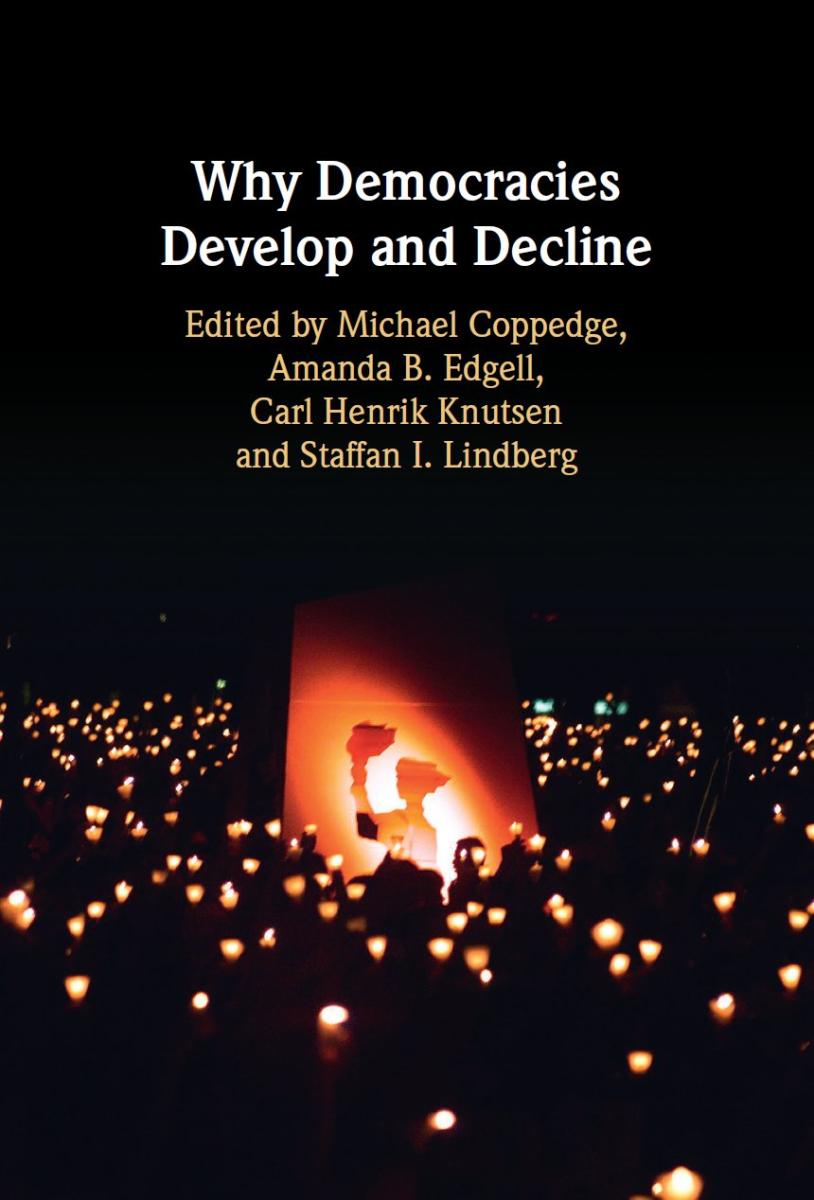 About this Episode
About this Episode
Interviewed by doctoral students Benjamín García and Isabel Güiza-Gómez, political scientist and Kellogg Faculty Fellow Michael Coppedge discusses the foundational question of why some countries escape autocratic rule and strengthen democracy while others remain trapped. He introduces his recently co-authored book Why Democracies Develop and Decline, which offers evidence on democratization, democratic consolidation, and democratic backsliding, drawing on data assembled from the Varieties of Democracy Project (V-Dem).
Show Notes
Welcome to Global Stage, a podcast highlighting academic and policy-oriented international research on democracy and human development! Global Stage is brought to you by the Kellogg Institution for International Studies, part of the Keough School of Global Affairs at the University of Notre Dame. Your hosts are Benjamín García, a PhD candidate in political science and Isabel Güiza-Gómez, a PhD student in political science and peace studies.
Kicking off the first season of the podcast, Benjamín and Isabel welcome guest Michael Coppedge. Michael is a professor of political science and Faculty Fellow at the Kellogg Institute. He is a world renowned specialist on the conceptualization and measurement of democracy and is a principal investigator of the Varieties of Democracy Project. Most recently, he co-edited the collaborative volume Why Democracies Develop and Decline.
To begin, Michael shares what we can learn about democratization, democracy consolidation and democratic backsliding from his recently published collaborative volume. The volume distinguishes five varieties of democracy and reports that the egalitarian variety is the most distinctive one. The chapter on social forces provides the most comprehensive test yet of the impact of civil society on democratization. Next, hear the methods Michael and his co-authors used to assess causes of democratization and what findings surprised him most in his research. The situation of simultaneity, he explains, makes it tricky to estimate the influence each country has on other countries. So, they use domestic determinants in each country as instruments to estimate what the level of democracy would have been in the absence of international influence. The half life of the effect of the influence from country to country is 22 years, and it takes about 70 years for the full effect to be realized.
Another finding of Michael’s research was that peaceful protests in particular help drive upturns while anti-system movements drive downturns. These gains and losses tend to not be sustained if they deviate from their equilibrium. Michael and his co-authors argue that democracy and authoritarianism are portrayed at equilibriums. He cites the response of the American democratic party to the Trump presidency. Before wrapping up, Michael shares how he and his co-authors landed on the concluding chapter for the book. Finally, he poses a few possible research questions for anyone listening who wants to learn more.
 Links
Links
Learn more about Michael Coppedge
Learn more about the book Why Democracies Develop and Decline (Oxford University Press, 2022)
Learn more about the V-Dem (Varieties of Democracy) Project
Learn more about the Kellogg Institution for International Studies
Listen
Listen below, ask your smart device to “play Global Stage Podcast,” or find us on:
Apple | Spotify | Google Podcasts | Stitcher | iHeartRadio





